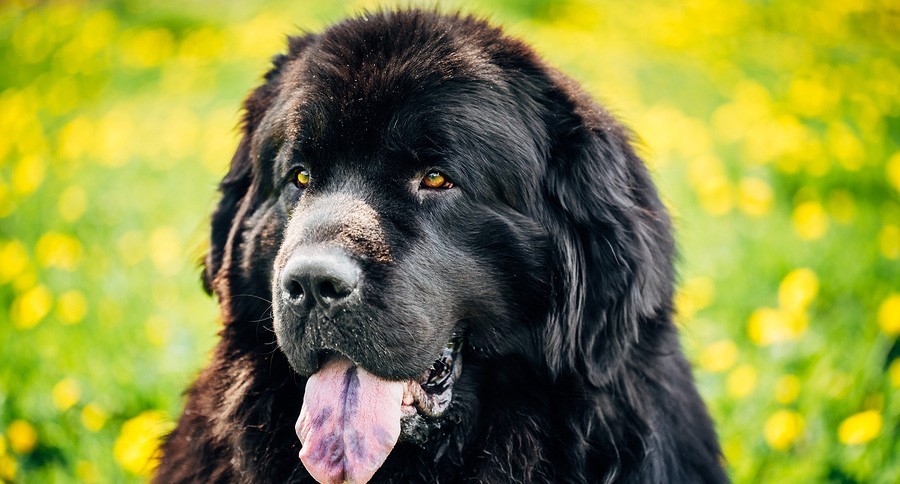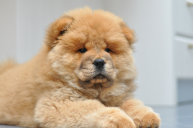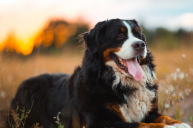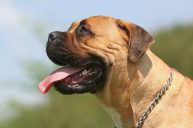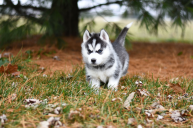WATCH NOW: Newfoundlands Are Nanny Dogs
Known for its sweet temperament, the Newfoundland (affectionately called the Newfie, or Newf) is a true working dog. This large breed of dog is a great swimmer, rescue dog, and family dog. And, it makes quite an impression when strolling down the sidewalk, thanks to its beautiful coat and large size.
The Newfoundland can make a great addition to most families, as long as you're prepared for the care that this breed requires. Its thick coat needs regular grooming, and because these dogs are so large, it's important to ensure that your dog receives quality training. Affectionate and loyal when raised well, this might just be the perfect breed for your home.
History of the Newfoundland
The Newfoundland is as comfortable working on land as it is in the environment for which it was bred: the water. Today the 36th most popular dog breed in America, the Newfoundland was officially recognized by the American Kennel Club in 1886.
There is some disagreement as to the Newfoundland's ancestry. The Great Pyrenees, the Boarhound, and the Mastiff are among the possible contributors to the Newfoundland's genetics, and some contend that Basque fisherman were responsible for bringing the Newfoundland's ancestors to the Newfoundland coast. What is certain, though, is that the Newfoundland's predecessors were brought to the island of Newfoundland by fishermen who came over from Europe, and that the modern day Newfoundland, as we know it, originated on its namesake island.
The Newfoundland was originally bred to help fishermen with all manner of water-related tasks, including water rescue. However, their capacity as working dogs isn't limited to the water; to this day, Newfies are used as draft and pack animals in Newfoundland and Labrador.
Breed Qualities
Although they are known for their loyalty and intelligence, a sweet temperament is the defining characteristic of the Newfoundland. Relatively easy to train, these large dogs are gentle giants with an inherent goodness and an affinity for children, traits that make them wonderful family dogs. Early socialization can help to ensure that these dogs develop the skills and training necessary to be right at home in a family setting.
The Newfie's size and strength also render him an able guard dog, although potential owners need to be aware of the challenges that come with owning a dog of such large proportions. Newfies have a life expectancy between 8-12 years and, like all dogs, require daily exercise.
Bringing Home a Newfoundland
While you research the Newfoundland puppy you should also be aware of any potential health conditions that affect the breed, like elbow dysplasia. This large breed has some recommended tests which should be discussed with breeders. Be sure to buy a puppy from a reputable breeder who understands the health problems associated with this breed. Selective breeding can help to minimize the chances of puppies being affected by these issues.
The American Kennel Club tells us that the recommended health tests from the National Breed Club are:
- Hip Evaluation
- Elbow Evaluation
- Cardiac Exam
- Cystinuria DNA Test
"Responsible breeders screen their stock for health conditions such as elbow and hip dysplasia, cardiac disease, gastric torsion and cystinuria, which can cause stones to form in the urinary system."
They have a heavy, double coat that requires grooming.
There are many resources if you're interested in the Newfoundland dog including The Newfoundland Club of America, and Newfoundland breed rescue groups.
With all this in mind, these big dogs are excellent working dogs but they are off the charts when it comes to their affection level and are great family dogs.
Do you love giant breeds? Don't forget that the breed was memorialized in "Nana", the beloved guardian dog in J.M. Barrie's Peter Pan.
Hover over the image for more information.
Do you have a Newfie? Show us in the comments below!
READ NOW: Hilarious Newfoundland Can't Hide His Obvious Guilt
WATCH NOW: Bernese Mountain Dog Breed
